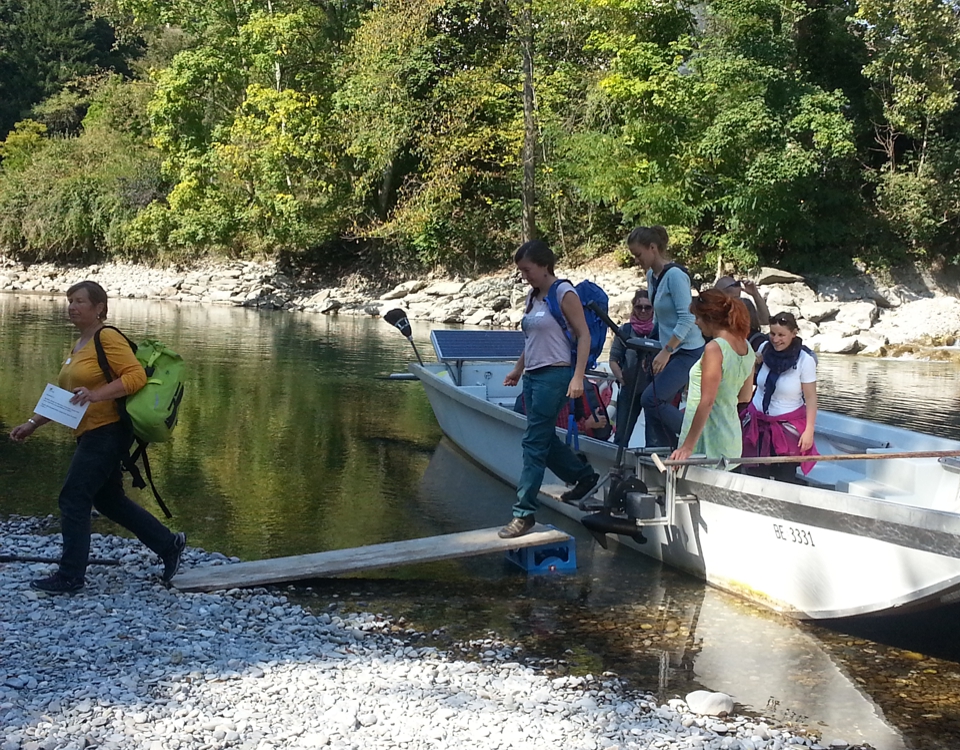Can refugees benefit from nature-based environmental education?

Bioeconomy and European Forest Week 2017 – a great chance to see the role of our forests in education for sustainable development
9. October 2017
Nonformal environmental education – an evaluation of quality in selected organizations and institutions conducting educational activities in Poland
17. October 2017
Can refugees benefit from nature-based environmental education? Annual national environmental education conference, organised by SILVIVA
Berne, Switzerland, 23rd of September 2017
Author: Fondation SILVIVA, Switzerland

S ILVIVA is organising a national get-together of environmental educators since more than ten years. The aim is to present practitioners in the field with continuous professional development, with innovative ideas, challenging questions and ample time to share their experiences, views and practices with one another.
This year SILVIVA tried to put two and two together. On the one hand, Switzerland, as all other European countries, experiences a so-called 'refugee-crisis' which – according to seasoned observers – is basically a crisis of non-communication, lack of trust and non-engagement between the Swiss population and the refugees and asylum seekers.
On the other hand, international research (see Krasny & Tidball (eds.), Greening the Red Zone, 2014) shows that activities in nature help people, who experienced trauma or a social or environmental catastrophe, to overcome these difficult experiences, to gain resilience and strengths again, to reconnect to the place where they live and to develop a sense of home and hope.
So we organised a day of exchange and sharing where we invited refugees, people from NGOs working with refugees and (mainly nature-based) environmental educators.
On Saturday, 23rd September 2017, around 100 people gathered to hear stories of refugees and their wishes and ideas at the address of environmental educators. In a walk-shop along the river Aare and across in a ferry seven groups discussed these and their own ideas, shared their stories of their fleeing and imagined ways how to mutually benefit from each other. After a wonderful lunch in the garden of the Zehndermätteli restaurant near Berne, the workshops continued on the meadow and in the forest, focussing on ways how existing educational offers for refugees by environmental NGOs could be improved or reinvented or muliplied, so as to serve the wishes and needs of the refugees better. We had invited seven organisations from the French and German speaking part of Switzerland to present their offers.
The results were quite impressive, at least to the participants:
- It became very clear that we as environmental educators need to engage in more humbleness and mindfulness. A lot of what we take for granted (learning in the forest is great fun; cooking on an open fire is cool) is by no means so for many refugees (forests in their countries can be positively dangerous places and many were traumatised in forests on their escape; they came here precisely so that they don't have to cook on open fires any more). So shifting our perspectives and listening attentively to the others with an openness to un-learn prejudice and previous assumptions become paramount.
- Dealing with the 'refugee-crisis' and achieving real integration of those human beings coming here requires shared experiences, repeated common interactions over a longer time to build mutual understanding and trust, leading to a shared sense of home. It was sobering to see that often wonderful educational offers are taken up by refugees, but not by Swiss people, thereby making shared experiences impossible. We all felt (nature-based) environmental educators need to make a big effort to change this.
Overall, participants were moved, touched and impressed by what they learned on the day, from the refugees and refugee-support people but also about themselves. They felt there was great potential to nurture and nourish existing and new projects in this area to contribute both to solutions of the 'refugee-crisis' and to the well-being of refugees in Switzerland. https://www.silviva.ch/weiterbildung/tagungen/erfa-tagung-2017/

